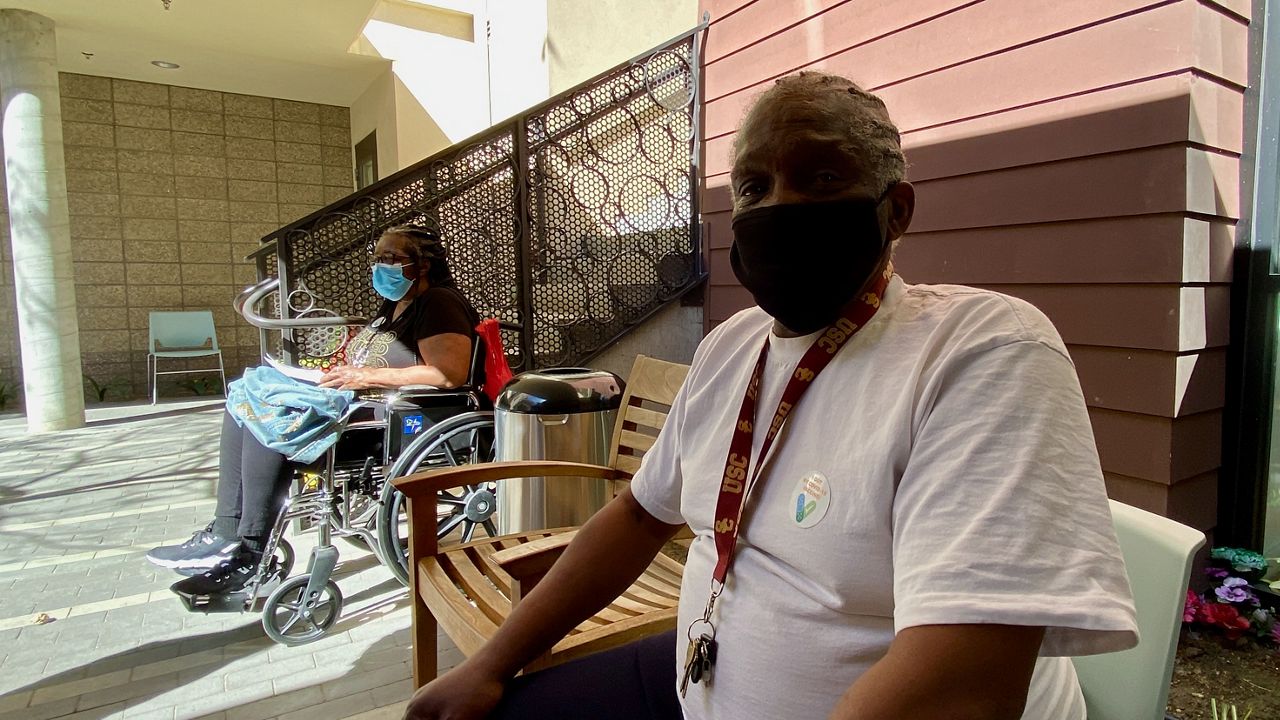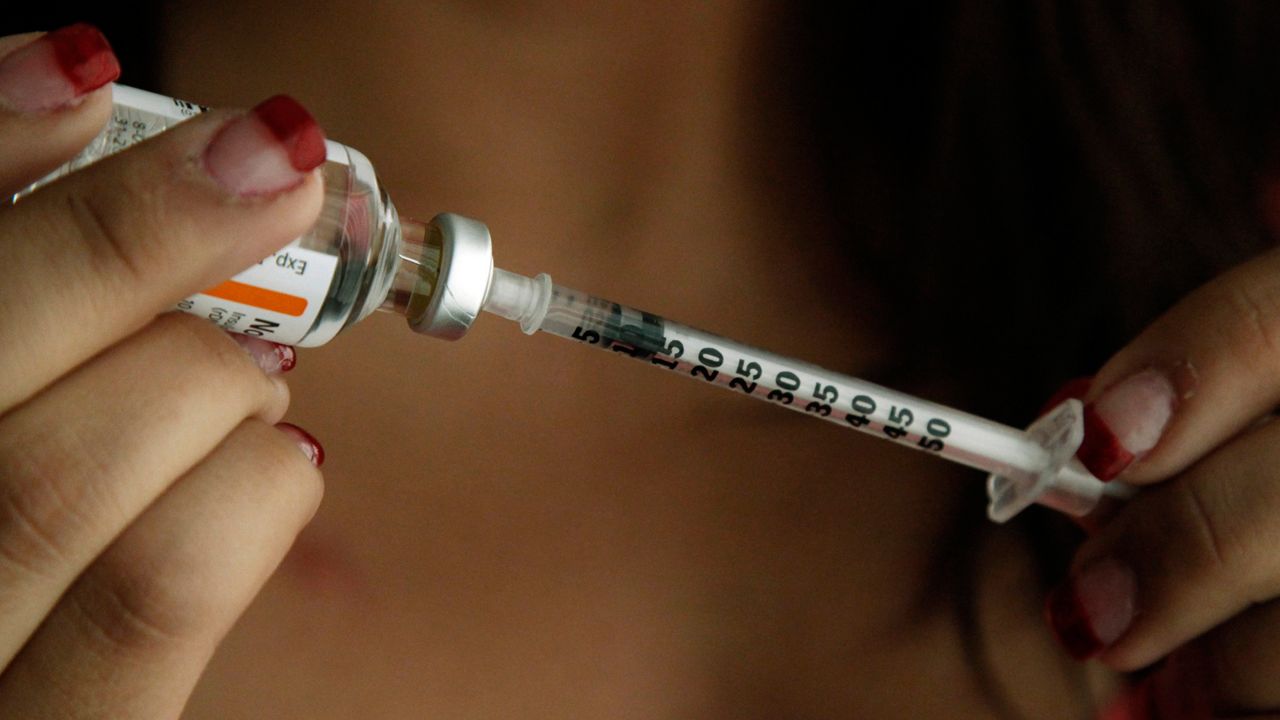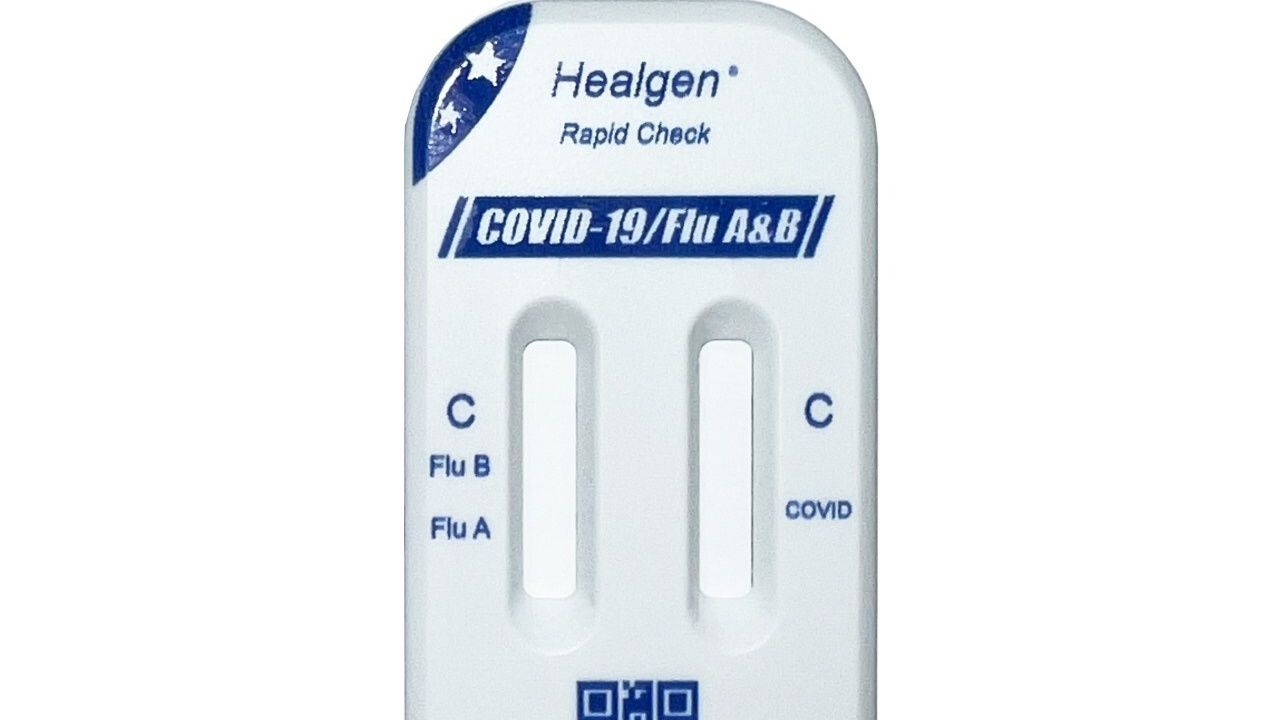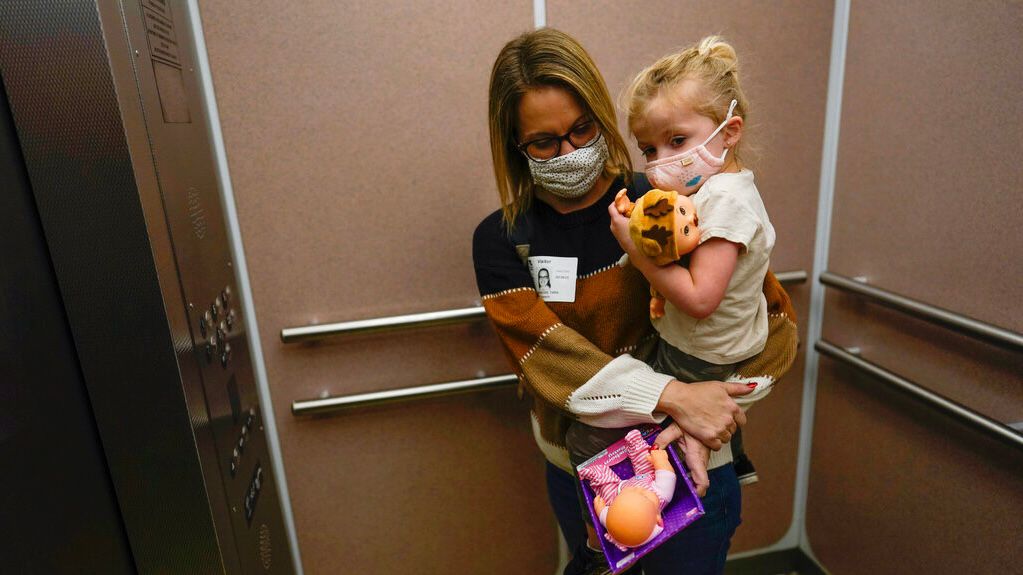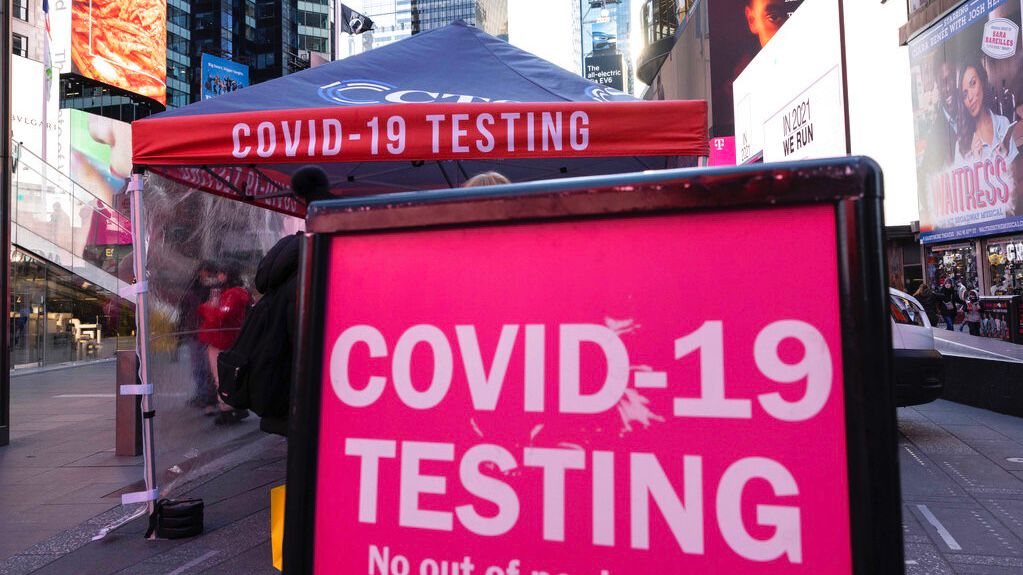NORTH HOLLYWOOD, Calif. — Even though he was spending his Friday morning sitting in line, Michael Reaves was feeling good, man.
“I got a whole lot more living to do,” he said, laughing along with his neighbors sitting in the courtyard at the NoHo Senior Villas in North Hollywood.
What You Need To Know
- Residents of the Winnetka Village Apartments were being provided with their first doses of the vaccine
- It was all thanks to a partnership between the Los Angeles County Department of Health Service’s Housing for Health program and People Assisting the Homeless (PATH)
- Housing for Health is working to convince people of the science behind the vaccine, that it’s safe, and that it will provide a substantial measure of protection against contracting COVID-19
Like Reaves, the folks gathered there were waiting in line to get their first shot of a COVID-19 vaccine.
Reaves and his neighbors, as well as a handful of residents of the Winnetka Village Apartments, were being provided with their first doses of the vaccine thanks to a partnership between the Los Angeles County Department of Health Service’s Housing for Health program and People Assisting the Homeless (or PATH), a homeless-services provider that operates the two facilities.
In four weeks, those same people will be back, getting their second dose of the vaccine.
All of the people being helped that day are formerly-homeless seniors who now have a roof over their heads — and in the case of people like Reaves, they’re planning to stay there until they say the Lord takes them home.
Ideally, with the vaccine's help, that won’t be any time soon.
“Right. And when I go, I’m gonna go healthy,” Reaves said.
That morning, four vials of the Moderna two-shot vaccine were available, providing 40 doses to senior residents of the two PATH facilities. Both facilities provide permanent supportive housing to formerly unhoused people, and offer eligible residents apartments with on-site case management services as they become used to living in a space of their very own.
“This is their time to shine, their time to go ahead and enjoy life, and we’re here to support them with that,” said Mark Matlock, a PATH case manager.
In many cases, when these PATH clients moved in, it was the first time in a long time that they were going to sleep in their very own homes, with their very own beds.
“When you wake up that first morning, your left brain — which was on survival mode — is going to be off,” Matlock said.
While they adjust back to life under a roof, PATH provides them with transportation to and from medical appointments, connections with food banks, and links to other necessary services. In this case, that means access to COVID vaccines.
Housing for Health was the other half of Friday’s equation. HFH is the entity designated by the Los Angeles County Department of Health to distribute vaccines to homeless services providers. And in the lead-up to vaccination events, HFH comes in ahead of time to ensure that people are aware of vaccine availability and that they feel comfortable getting the shot.
“That’s one of the biggest things we do — we do a lot of engagement and education, and we bring the facts to them,” said Brenda Gonzalez, a program manager with Housing for Health. “Regarding the vaccine, we do encounter folks that are on the fence.”
In many cases, Housing for Health is able to convince people of the science behind the vaccine, that it’s safe, and that it will provide a substantial measure of protection against contracting COVID-19.
But in the cases that a person declines the vaccine — whether a doctor has ordered that their weakened immune systems put them at risk, or they’ve delved into a vaccine-questioning corner of YouTube, or anywhere between — or changes their mind at the last minute, PATH and Housing for Health has a number of people on stand-by lists.
Mary Ramirez, a PATH client, was able to obtain her first dose of the vaccine on Friday when other people in front of her on the waitlist dropped out.
“My problem was registering — I get panic attacks on the phone, and I had trouble registering on the system,” Ramirez said. Then Matlock, her caseworker, told her about Friday’s event. “The line was full, but two people were dropped out, so I’m really glad that it was available.”
“It’s like I tell everyone, this is the only way that we’ll get back to normal,” Ramirez said. “Maybe not completely normal,” she stressed, “but a real normal. We have to be patient.”






